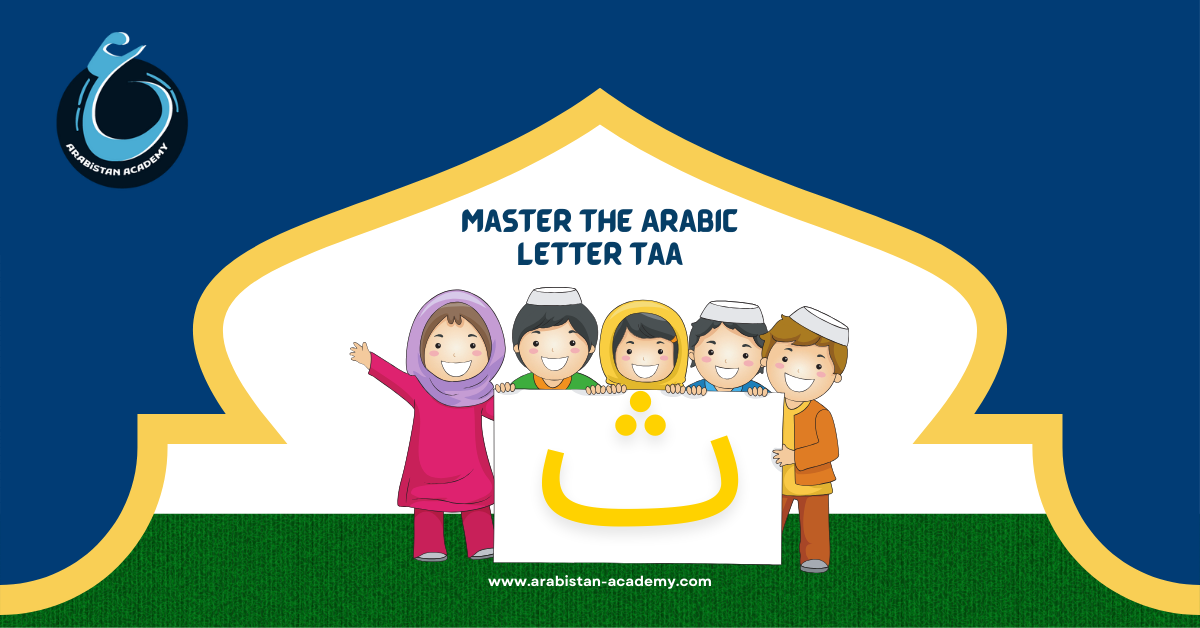Introduction:
Welcome back, language enthusiasts! Today, we delve into the fascinating world of the Arabic letter “thaa” (ث), a sound that sets Arabic apart and adds a distinctive flavor to the language. While it may appear slightly intimidating at first, with the right guidance and practice, you’ll be pronouncing “thaa” like a native speaker in no time. Let’s embark on this linguistic journey and uncover the secrets of “thaa”!
Understanding “Thaa”: The Sound and Its Variations
The Unvoiced “Th” Sound:
The most important thing to remember about “thaa” is that it represents an unvoiced “th” sound, similar to the “th” in “thick” or “thorough.” Unlike the voiced “th” in “the” or “this,” “thaa” is produced without vocal cord vibration.
Forms of “Thaa”:
Like other Arabic letters, “thaa” takes on different forms depending on its position in a word:
- Standalone Form (ث): This is how “thaa” appears on its own.
- Initial Form (ثـ): When “thaa” begins a word, it connects to the following letter with a short horizontal stroke.
- Medial Form (ـثـ): In the middle of a word, “thaa” connects to both the preceding and following letters.
- Final Form (ـث): At the end of a word, “thaa” connects only to the preceding letter.
Vowel Sounds and “Thaa”:
The sound of “thaa” remains consistent regardless of the vowel mark (harakah) that accompanies it. This makes it easier to master than some other Arabic letters.
- Fatha (َ): ثَ (tha)
- Dammah (ُ): ثُ (thu)
- Kasrah (ِ): ثِ (thi)
Practice Tips for Mastering “Thaa”:
- Tongue Placement: Pay close attention to how your tongue lightly touches the back of your upper front teeth when producing the unvoiced “th” sound.
- Minimal Pairs: Practice words that contrast “thaa” with other similar sounds, such as “seen” (س) or “zaa” (ز).
- Tongue Twisters: Challenge yourself with tongue twisters that feature “thaa” repeatedly.
- Immersion: Listen to native speakers and try to mimic their pronunciation of “thaa.”
Why Mastering “Thaa” Matters:
“Thaa” is a defining feature of Arabic pronunciation. It’s found in many everyday words and is essential for understanding the nuances of Arabic grammar and vocabulary. Mastering “thaa” will not only improve your pronunciation but also deepen your understanding of the language’s cultural richness.
Next Steps on Your Arabic Adventure:
Congratulations on adding “thaa” to your Arabic pronunciation repertoire! Remember, practice and perseverance are your allies. Continue exploring the Arabic alphabet, discovering new vocabulary, and immersing yourself in the vibrant world of Arabic language and culture.
Ready to keep learning? Stay tuned for more articles, tips, and resources to help you on your Arabic language journey!

